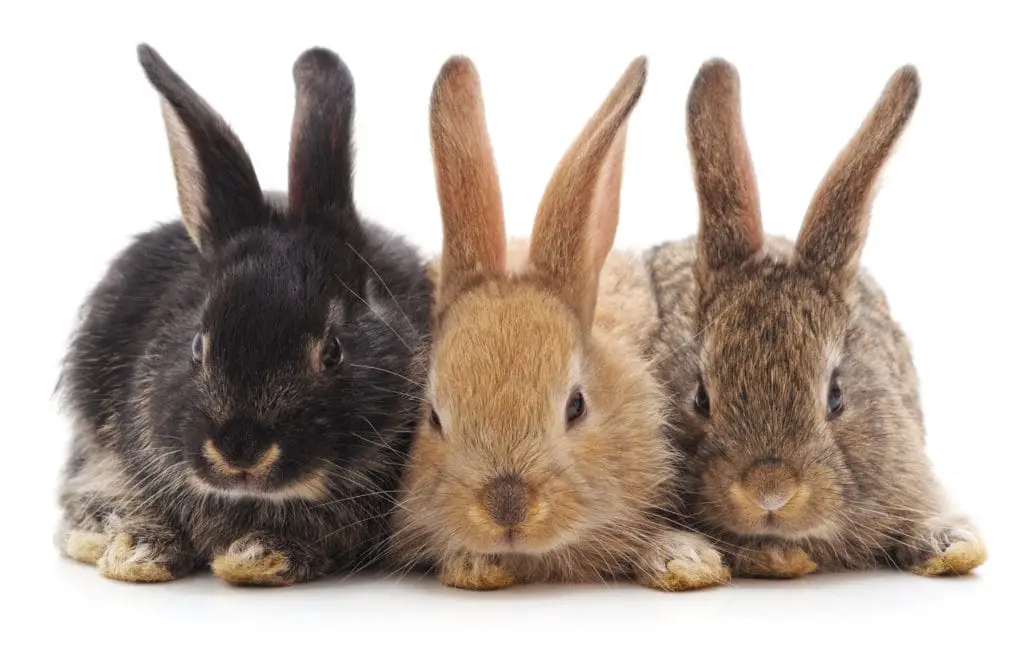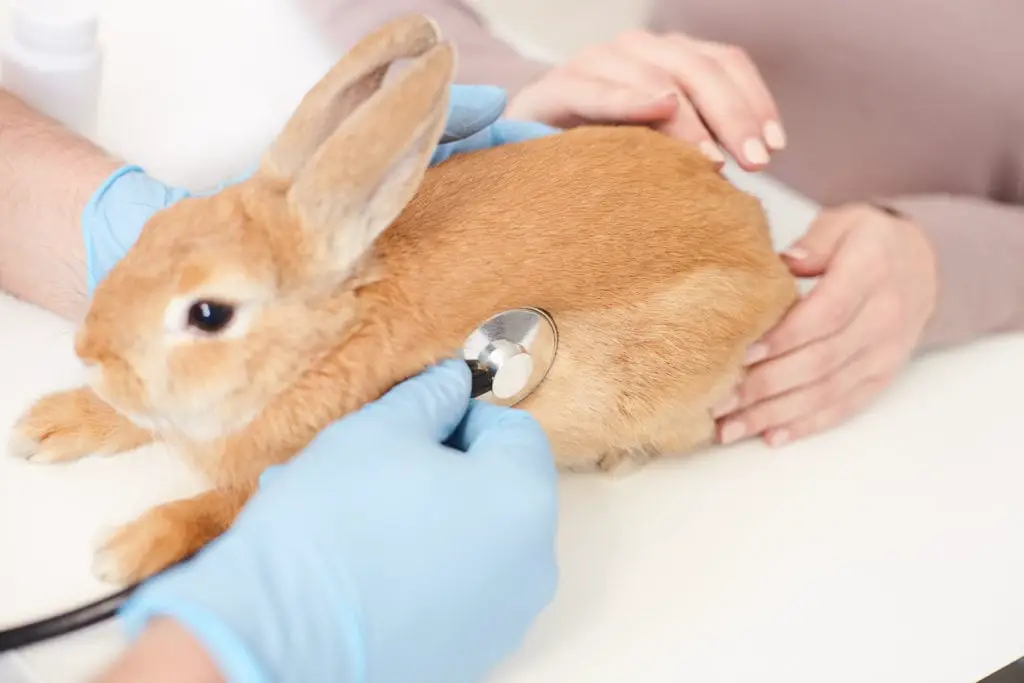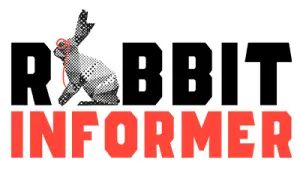
While rabbits have many babies during their lifetimes, it is sometimes hard to tell if the kits, or baby rabbits, are being fed or if the mother has abandoned them. There are a few easy ways to tell if the kits are being taken care of.
If the mother rabbit is not feeding her babies, hold her above them and try to get them to nurse. This tends to happen more often with new mother rabbits. Rabbits stand above their babies while they nurse. If your rabbit does not begin to nurse her babies after you intervene, contact your veterinarian.
If you do have to intervene to get your rabbit to feed her babies, pet her while you are doing so to help keep her calm. New rabbit mothers sometimes have a hard time figuring out what has happened, and the sensation of kits nursing will be a foreign feeling for her. However, it’s important to know indicators of why a mother won’t nurse and how to help her kits.
How Long Can Babies Survive Without Eating?
Baby rabbits can survive 24-48 hours without eating, so it is okay if your rabbit does not feed her babies immediately after she gives birth. Give her a little bit of space to recover from the birth before prompting her to feed the babies. She may not be sure of what to do at first, but she should begin to understand the concept quickly.
Baby rabbits only need to eat once a day, so do not worry if you do not see the kits eating. If the babies are warm, their skin is dark pink, and not overly wrinkled, and they are sleeping calmly in the nest, then they are being fed and well taken care of. You may even be able to see their bellies full of milk while they are very young because of how transparent their skin is.
However, if the babies are very wrinkled, cold, bluish in color, have shrunken bellies, and perhaps are even crawling around looking for their mother, instead of sleeping, then you may have to intervene. This means that they are not being fed, and the mother may have rejected them.
You can learn how to intervene and provide the nourishment your baby rabbits need on my article Feeding a Baby Rabbit: What, When, and How Much here.
How Can I Tell if She Is Taking Care of Her Babies?
One easy way to see if a mother rabbit is taking care of her babies is to look into the nesting box. If your rabbit has pulled her fur and placed it around the babies, then she is taking care of them. Don’t worry if she does start pulling at her fur, it will not hurt her, and this is a very natural rabbit behavior to display right before giving birth. This provides warm bedding for the babies to stay protected.
COMMON QUESTION: Do rabbits need a heat lamp? In most circumstances, baby rabbits don’t need any additional warmth other than what their mother should naturally be providing. To see some circumstances when you should provide additional warmth and what the safest way to provide it is, see my article all about baby rabbits and heat lamps here.
If the mother has not engaged in any “nesting” behaviors or doesn’t appear to be producing milk for her babies, take her to a veterinarian immediately. Often, veterinarians who are familiar with rabbits will give them oxytocin, a medication that will help stimulate the milk glands to produce milk.
However, the oxytocin will not work 48 hours after she gives birth, so do not wait too long to try this method.
If you find a wild burrow, do not disturb it until you are sure that the mother is not coming back. Even if you do not see the mother return, she may still be taking care of her babies.
How Often Should I Check on the Babies?
If you feel the need to check on the babies, check on them once a day. When doing so, avoid wearing any perfumes, and wash your hands thoroughly beforehand. Pet the adult rabbit before touching the babies. Try to touch the babies as little as possible until they leave the nest box on their own.
This will help prevent you from leaving any human scent on them. Rabbits have a very good sense of smell, but their eyesight is not the best. They rely on scents to identify their babies, and if their scents change in drastic ways, the mother rabbit may not recognize them and stop feeding the babies before they are ready to be weaned.
When Are Baby Rabbits Weaned?
Baby rabbits are weaned at around 4-6 weeks old. After this point, they can find food for themselves, and they can leave the nest box.
The reason that they are weaned off of a mother’s milk at such an early age is because of how often rabbits breed. A mother rabbit can become pregnant again on the same day that she has given birth, and rabbits are pregnant for 4 weeks, depending on the breed.
Can Female Rabbits Foster Other Babies?

If your rabbit is not feeding her babies, and you have tried to get her to nurse, other rabbits can foster the babies. However, it is very hard to get another rabbit to take care of more babies. Rabbits can only take care of so many babies, and if they have more than 10 to take care of, a few of the kits will not be taken care of. Not because she does not care about them, but because there are just too many babies for her to care for.
Can Rabbits Be Bottle-Fed?
Rabbits can be bottle-fed, but it is not easy to do and is not recommended unless every other possible avenue has been tried, and has failed. Most bottle-fed rabbits do not survive for more than 3-4 weeks.
The reason why it is so difficult to bottle feed rabbits is that no formula matches a rabbit’s milk exactly. It is also very easy for the kits to get milk in their lungs, and once they get milk in their lungs, it is very easy for them to contract pneumonia or another deadly illness when they are too young, and their immune system is too weak.
There are also psychological reasons why bottle-feeding does not work for rabbits. However, those reasons are not fully known, so you can’t try and compensate in those areas.
If you do not know how to care for baby bunnies and do not feel confident in your ability to do so, please do not attempt to bottle-feed them. Many things can go wrong, and it is very hard to successfully bottle-feed baby rabbits.
Is My Rabbit Injuring Her Babies?
If the baby rabbits have been fully weaned, it is best to remove them from the same cage, or hutch, as their mother. They are still young and full of energy. They become very annoying very quickly to their mother, and she may become aggressive towards them and start biting them when they come too close to her.
Rabbits are not naturally maternal animals, and they like having space from their young ones. When you remove the young rabbits from the same cage as their mother, she now has a chance to rest and recover, which is important for your rabbit’s health. It is recommended that you wait at least 14-21 days before breeding your rabbit again, but it is better for your rabbit if you wait at least 31 days to breed them again.
Do not put a male rabbit in the same cage as a female rabbit before this period of time is over, as he will try to breed with her again as soon as he can. This can cause her to become exhausted and depleted of key nutrients that she needs to stay healthy.
If your rabbit has been bred often and now is not feeding her babies, but she has had no issues feeding them before this point, then she has become depleted and is exhausted. This can happen often with exotic breeds that are overbred because their offspring are worth more.
If your rabbit has begun to eat her babies, then she may be deprived of nutrients, or there may have been something wrong with the kit. Rabbits often do this in the wild if there is something wrong with a kit. It is nature’s way of cleaning up the mess.
Wild rabbits also eat the placenta because of the nutrients that it contains, and because it can attract predators if it is not taken care of. This tends to shock people when they see this, but it is normal. If you do see her eating the placenta, do not try to stop her.

When Should I Call My Vet?
If the mother rabbit is refusing to take care of her babies, and she has removed them from the nest box on purpose, then you should contact your veterinarian immediately. Also, if she has become aggressive towards her babies, then you should separate them, and contact your veterinarian for instructions on what to do next. If you have any concerns, then do not hesitate to contact your veterinarian for advice on how to help your rabbit.
Other Things to Consider
- Pet Rabbit Insurance: When Is It Worth It? – Even if you don’t need to take your rabbits to the vet this time, it’s only a matter of time before you do and vet bills can add up very quickly. Some companies are offering rabbit insurance, but should you get it? Is it really worth the cost? This article will give you an easy breakdown on the different types of insurance and what you should (or shouldn’t) get.
- Guide: How to Care for Rabbit After Giving Birth – It’s very important to take care of the new baby rabbits in the nest, but mother rabbit just went through something very taxing on her body as well! Keeping her happy and healthy will mean she can better provide for her new kits. Here’s what you should do to care for her after she gave birth.
